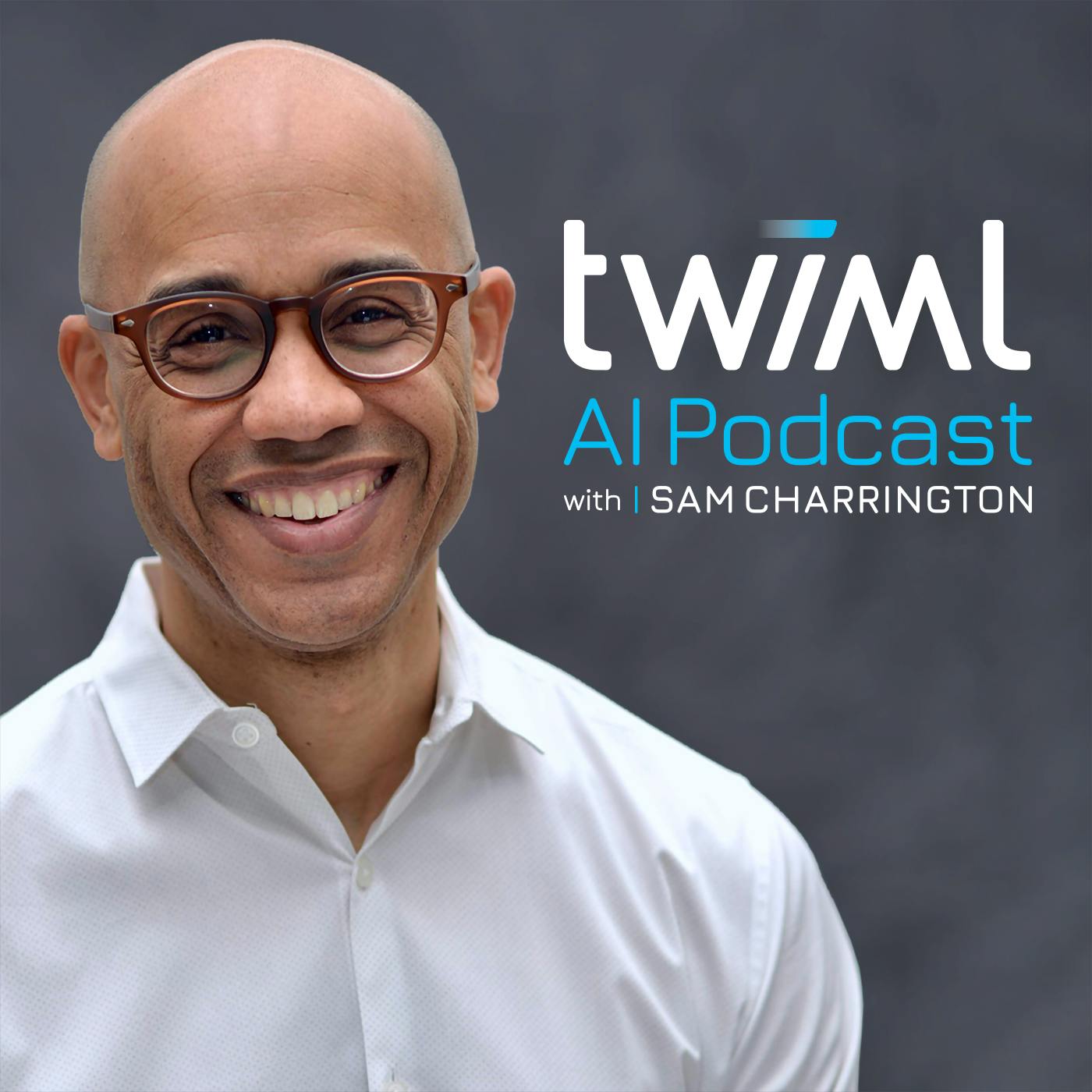Long Context Language Models and their Biological Applications with Eric Nguyen - #690
25 Jun 2024
45 MINS
45:41
25 Jun 2024


…
Machine learning and artificial intelligence are dramatically changing the way businesses operate and people live. The TWIML AI Podcast brings the top minds and ideas from the world of ML and AI to a broad and influential community of ML/AI researchers, data scientists, engineers and tech-savvy business and IT leaders. Hosted by Sam Charrington, a sought after industry analyst, speaker, commentator and thought leader. Technologies covered include machine learning, artificial intelligence, deep learning, natural language processing, neural networks, analytics, computer science, data science and more.
Machine learning and artificial intelligence are dramatically changing the way businesses operate and people live. The TWIML AI Podcast brings the top minds and ideas from the world of ML and AI to a broad and influential community of ML/AI researchers, data scientists, engineers and tech-savvy business and IT leaders. Hosted by Sam Charrington, a sought after industry analyst, speaker, commentator and thought leader. Technologies covered include machine learning, artificial intelligence, deep learning, natural language processing, neural networks, analytics, computer science, data science and more.
Progress
Duration
Release Date
25 Jun 2024
45 MINS
45:41
25 Jun 2024
18 Jun 2024
47 MINS
47:46
18 Jun 2024
10 Jun 2024
1 HR 10 MINS
1:10:41
10 Jun 2024
03 Jun 2024
48 MINS
48:26
03 Jun 2024
27 May 2024
56 MINS
56:10
27 May 2024
20 May 2024
43 MINS
43:05
20 May 2024
13 May 2024
55 MINS
55:06
13 May 2024
07 May 2024
49 MINS
49:41
07 May 2024
29 Apr 2024
42 MINS
42:09
29 Apr 2024
22 Apr 2024
47 MINS
47:08
22 Apr 2024
16 Apr 2024
46 MINS
46:24
16 Apr 2024
08 Apr 2024
49 MINS
49:46
08 Apr 2024
01 Apr 2024
48 MINS
48:27
01 Apr 2024
25 Mar 2024
47 MINS
47:47
25 Mar 2024
18 Mar 2024
49 MINS
49:34
18 Mar 2024
11 Mar 2024
40 MINS
40:26
11 Mar 2024
04 Mar 2024
32 MINS
32:12
04 Mar 2024
26 Feb 2024
25 MINS
25:03
26 Feb 2024
19 Feb 2024
45 MINS
45:38
19 Feb 2024
12 Feb 2024
1 HR 05 MINS
1:05:40
12 Feb 2024
05 Feb 2024
1 HR 10 MINS
1:10:25
05 Feb 2024
29 Jan 2024
35 MINS
35:29
29 Jan 2024
22 Jan 2024
39 MINS
39:45
22 Jan 2024
15 Jan 2024
38 MINS
38:48
15 Jan 2024
08 Jan 2024
1 HR 05 MINS
1:05:18
08 Jan 2024
02 Jan 2024
52 MINS
52:01
02 Jan 2024
28 Dec 2023
48 MINS
48:13
28 Dec 2023
26 Dec 2023
46 MINS
46:49
26 Dec 2023